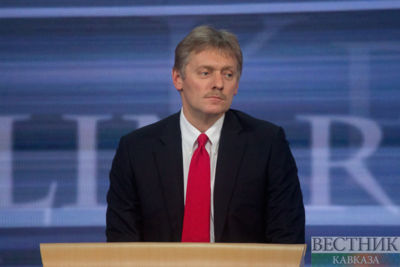On Thursday, April 15, US President Joe Biden imposed a new round of sanctions against Russia. The Treasury Department blacklisted six Russian technology companies that supported the cyber program run by Russia’s intelligence services. Eight persons and entities associated with Russia’s actions in Crimea were also sanctioned as were 32 entities and individuals who had allegedly carried out Russian government-directed attempts to influence the 2020 U.S. presidential election through disinformation spreading and interference.
As Eurasia Review writes, in response, the Deputy Chairman of the Russian Federation Council’s (the upper house of parliament) Committee on Foreign Affairs, Vladimir Dzhabarov said: “There will be a response, a tit-for-tat one.”
Sanctions, as a US foreign policy tool, was initiated by President Woodrow Wilson in 1919, when he said: “A nation that is boycotted is a nation that is in sight of surrender. Apply this economic, peaceful, silent, deadly remedy and there will be no need for force. It does not cost a life outside the nation boycotted, but it brings a pressure upon the nation which, in my judgment, no modern nation could resist.”
Since then, the US has been imposing sanctions with regularity. Nowadays, sanctions take the form of arms embargoes, foreign assistance reductions and cut-offs, export and import limitations, asset freezes, tariff increases, revocation of Most Favored Nation (MFN) trade status, negative votes in international financial institutions, withdrawal of diplomatic relations, visa denials, cancellation of air links, and prohibitions on credit, financing, and investment. Economic restrictions may include denial of access to the US financial system, freezing assets under US jurisdiction, or the prohibition of certain exports.
In his 2020 article titled “The Effectiveness of Economic Sanctions as a Security Tool,” Mark Tarallo notes that small scale sanctions have also been clamped by the US. In 2018 the US added nearly 1,500 people, companies, and other entities to sanctions programs managed by the US Treasury Department, nearly 50 percent more than in 2017.
According to Dursun Peksen, a sanctions expert at the University of Memphis in Tennessee, conventional trade and financial sanctions have resulted in some meaningful behavioral change in the targeted country “about 40% of the time.” But others do not paint such a rosy picture.
Although the US has used sanctions continuously in dozens of contexts, the success rate has been poor says economist Kimberly Ann Elliot, writing for the Peterson Institute of International Economics. According to her, “even the global, comprehensive, and vigorously enforced sanctions” against Iraq and the former Yugoslavia, produced, at best, limited results. In some cases, military force had to be used to back sanctions as in Mali. Since 1970, unilateral US sanctions had achieved foreign policy goals only in 13% of the cases.
Further, in 1995, sanctions hit US exports to 26 target countries to the tune of US$15 billion to US$ 19 billion. 200,000 or more jobs were lost in the highly lucrative US export sector. US sanctions led to increasing tensions between the US and its allies or trading partners around the world, Elliot observes. US firms could be regarded as “unreliable suppliers.” Sanctioned countries might avoid buying from US exporters even when sanctions were not in place, thus giving firms in other countries a competitive advantage in those markets, she warns.
Secondary Sanctions
Richard N. Haass writing in brookings.edu in 1998, pointed out that the US resorted to “secondary sanctions” to compel others to join its sanctions effort. But this could cause “serious harm” to a variety of US foreign policy interests, he points out. This happened when sanctions were clamped on overseas firms which violated US sanctions vis-à-vis Cuba, Iran, and Libya. Anti-American sentiment went up in countries subjected to secondary sanctions. They created discord in the World Trade Organization (WTO). And all the while, “attention was drawn away from the provocative behavior of the target governments,” Haass pointed out.
Sanctions could cause distress in the targeted countries which could be described as human rights violations. For example, sanctions on Haiti triggered an exodus. In former Yugoslavia, sanctions created a military imbalance. “The arms embargo weakened the Muslim Bosnian side while Bosnia’s Serbs and Croats had larger stores of military supplies and greater access to additional supplies from outside sources,” Haass recalled.
Military sanctions against Pakistan increased its reliance on the nuclear weapons option and affected the reliability of the US as an ally. Former US Ambassador to Sri Lanka and a seasoned US State Department, Robert Blake, said in Colombo a few years ago that the US lost touch with a whole generation of Pakistani military officers because of military sanctions. Pakistan has now gone over to the Chinese side.
Sanctioned countries may see the strengthening of extreme nationalism and authoritarianism as a reaction. Also, “sanctions fatigue” may settle in, over time, weakening international compliance.
Haass recommends that sanctions be employed only after careful consideration of the gains and losses. Sanctions are meaningless if they hurt the sanctioning country. Since unilateral sanctions tend to fail, multilateral support for economic sanctions should normally be a “prerequisite”. Secondary sanctions are to be avoided. Instead, consensus should be built with other countries on the matter. Further, instituting sanctions against those who do not comply with the sanctions “is an admission of a diplomatic failure to persuade,” he avers.
Very importantly, Haass says that “sanctions should not be used to hold major or complex bilateral relationships hostage to a single issue or set of concerns. This is especially the case with a country such as China, where the United States has to balance interests that include maintaining stability in South Asia and on the Korean Peninsula,” he explains.
He further states that “a nearly identical argument could be made about the wisdom of applying broad sanctions against Russia or India because of their transgressions in one realm. The alternative to broad sanctions in such instances is either to adopt narrow sanctions that are germane to the issue at hand or to turn to other policy tools.”
Innocents should not be made to suffer any more than is absolutely necessary, Haass insists. Lastly, policymakers should prepare and send to Congress a policy statement before or soon after a sanction is put in place. Such statements should give all sides of the picture, details of the potential gains and losses, and the risks too. There should be an annual Congressional review of the sanctions and the President should be given the power to call off or fine tune sanctions in the light of the ground situation and other relevant factors.
The US should shed its grandiose but outdated notion that it is the sole world power and act unilaterally. Even a supposedly defeated power like Russia can rise again to pose a serious challenge. The US has to contend with China’s economic power and it global reach, unimaginable a few years ago. Getting out of sticky situations as in Afghanistan can be more challenging than sending troops there and sinking trillions of dollars. Even traditional White allies in Europe could play truant when the US needs their cooperation desperately. Seeking consensus and cooperation are the prerequisites of a successful foreign policy, including the use of sanctions.
















